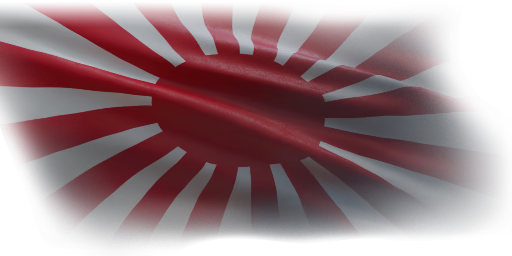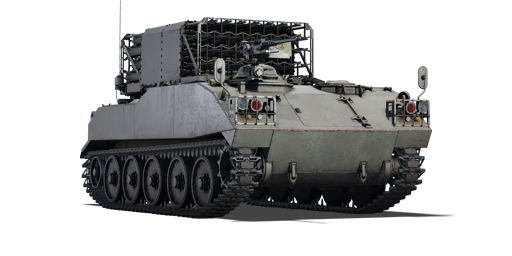



The Type 75 130 mm MLRS (75式130mm自走多連装ロケット弾発射機) is a Japanese rocket artillery system designed for rapid, concentrated fire support against enemy fortifications, troop concentrations, and vehicles. Developed by Komatsu, it is mounted on a modified Type 73 APC prototype hull (SUB-I) and features a 30-barrel launcher arranged in an irregular 7-8-7-8 configuration from top to bottom, reducing alignment in launch trajectories. The system’s firing range extends 50° to either side, with a maximum elevation angle of 50°, allowing versatile targeting capabilities over a wide area.
It was introduced in Update 1.83 "Masters of the Sea". While the Type 75 MLRS may initially seem like a gimmicky vehicle, it brings a significant payload, with each 130 mm rocket weighing 43 kg and carrying 6 kg of TNT equivalent. Similar in role to self-propelled howitzers such as the Type 75 SPH or Type 99 SPH, the Type 75 MLRS has the advantage of firing its rockets consecutively without reloading between each shot. With a favourable velocity and drop-off for an MLRS of this caliber at 700 m/s, it offers rapid and devastating firepower.
| Ammunition | Type | Armor penetration (mm) at a distance: | |||||
|---|---|---|---|---|---|---|---|
| 10 m | 100 m | 500 m | 1000 m | 1500 m | 2000 m | ||
| R | 51 | 51 | 51 | 51 | 51 | 51 | |
| Belt | Belt filling | Armor penetration (mm) at a distance: | |||||
|---|---|---|---|---|---|---|---|
| 10 m | 100 m | 500 m | 1000 m | 1500 m | 2000 m | ||
| API-T/I/AP/API-T | 31 | 29 | 21 | 14 | 9 | 6 | |







 2 x (145 / 210 / 250) %
2 x (145 / 210 / 250) % 
 2 x 196 %
2 x 196 % 

Mobility | |
|---|---|
Protection |
|---|
Firepower |
|---|